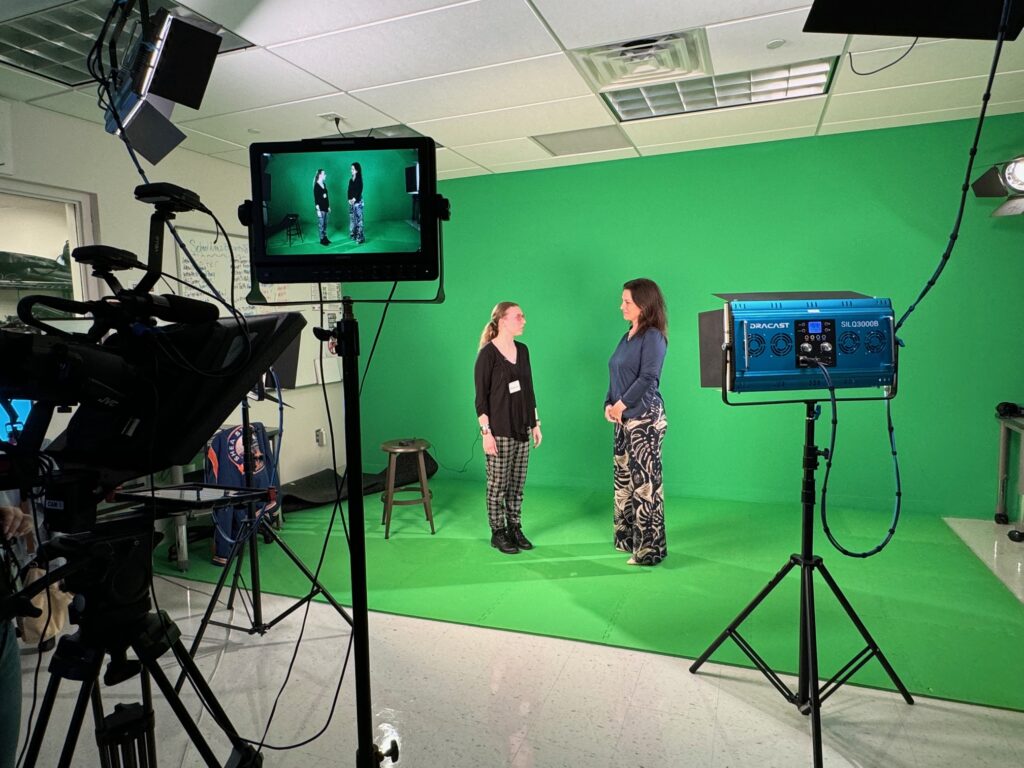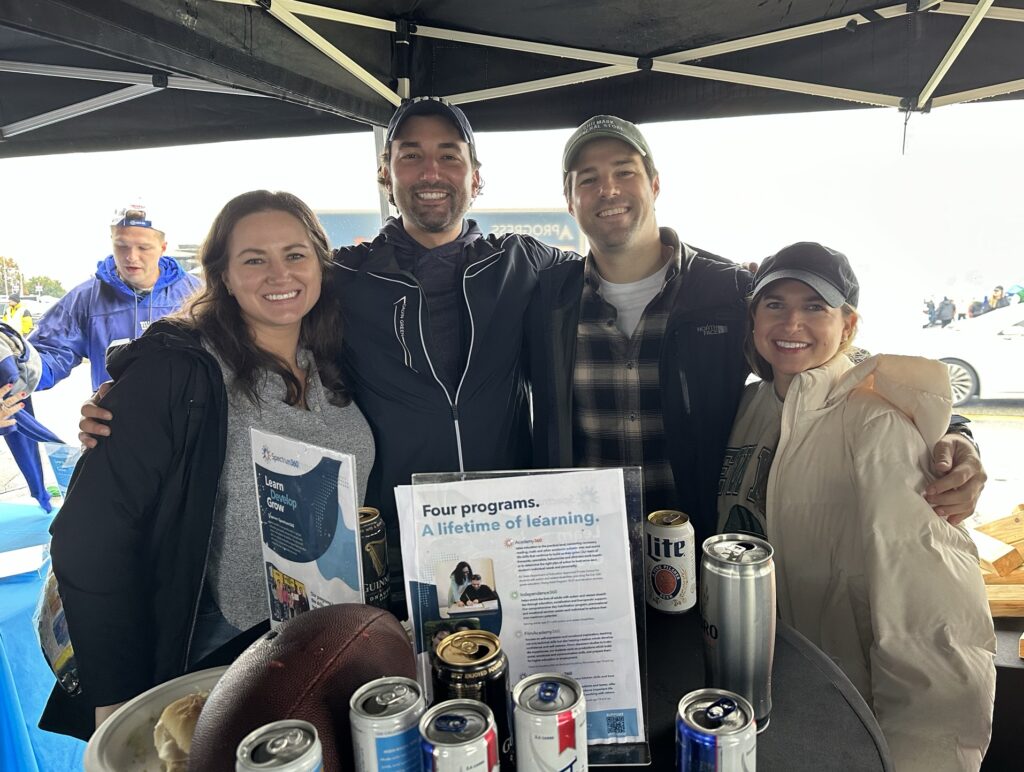For students at Academy360 and Independence360, working with plants opens up the world around them in meaningful and sometimes unexpected ways. Horticulture is an applied science, a craft, a profession and a business. Classes, starting in middle school and continuing through our adult program, offer individuals a basic understanding of plant science, its applications to practical growing situations, the craft of horticulture, and the business practices applied in the field.
Gardening is a great activity for individuals with special needs; teaching valuable skills in planning and following directions and strengthening motor skills. It also is shown to be soothing to those with emotional and sensory difficulties. In addition, for some individuals, it can become a vocation.
PLANTING THE SEEDS IN MIDDLE SCHOOL
“I love to see them learning about and enjoying nature. Being able to touch things, to make the connection with nature. They love to water, to watch their plants growing,” says Carol Mainardi, instructor for A360’s horticulture program. Her program provides a hands-on learning experience, educating students in plant structure and survival, reproduction and propagation, plant maintenance, principles of floral design and nature crafts, plantscaping, principles of pest control, and outdoor gardening.
Students begin by learning the most basic of gardening tasks – getting plants started. Using seeds, plant cuttings, and dividing existing plants found in the greenhouse, they grow a variety of flowering plants, herbs, and vegetables throughout the year.
Academy360 Lower School’s greenhouse is located on the top floor of the school, making it a bright and inviting location year-round. At Academy360 Upper School, older students and I360 clients work in a large greenhouse surrounded by an outdoor garden filled with perennials, and annuals.
Carol also has students grow a variety of edible plants, including tomatoes. She finds it especially gratifying to watch students enjoy, no pun intended, the fruits of their labor.
“I love to see them look at a tomato – when they are able to harvest some of the things they have planted and realize they can eat it. Some will taste things they’ve never eaten before They’re touching, feeling, and then actually tasting. All the work they’ve done, and they can see the results. It’s nice to see the kids branch out and grow too!”
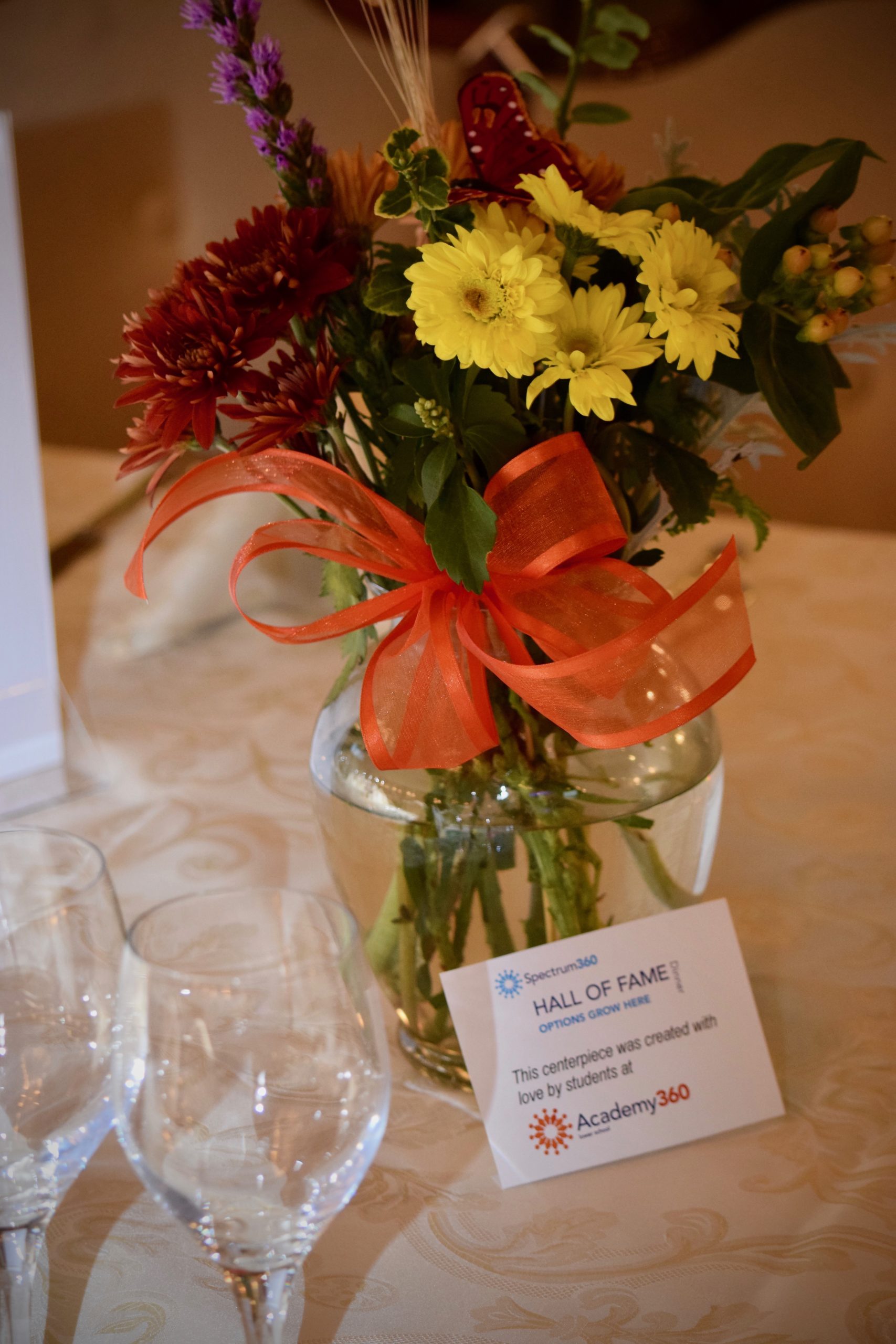
The pleasure found in gardening is more than enjoying pretty flowers. The students learn about all the phases of growing plants, from start to finish. Including dealing with insects! While some students may initially be very squeamish about living things found in the dirt and air, as they learn more about them Carol finds it helps to diminish the anxiety.
“We approach it in a light manner and learn all sorts of things about the bugs around us,” she says. “We find different insects inside the greenhouse: spiders, ants, some flies and occasionally bees. We learn how to deal naturally with insects,” she explains. “Basically learning how all levels of living things work together, and what specific things each is doing, why we need them, and how we can control them naturally.”
Research has found that working in a garden is very therapeutic.
“I have a student who, from the beginning, didn’t like ANYTHING — plants, soil, anything,” says Carol. “He’s calmed down through the semester, likes to wear his gloves, and has learned to appreciate things in a new way. Not that he likes everything, but his the anxiety level is down quite a bit. He can appreciate the plants and what they are doing. By learning through those aspects it kind of helps the students have a calming sense.”
The students are in charge of caring for their plants and keeping an eye on their progress. This isn’t only good for the plants. Getting their hands in the dirt not only helps the students develop motor skills and visual recognition, but also refines sensory skills.
“Scents, visuals — working with plants appeals to all the senses. It’s the type of program where they will work hands-on with soil and see what’s in there,” Carol says.
GROWING SKILLS IN ADULTHOOD
With the I360 clients, Aliza Kawecki, Independence360’s horticulture specialist, incorporates earth-friendly techniques in her lessons. Clients learn about composting and how it benefits the garden. This spring, they will study soil samples and how to amend the ground to make it more welcoming for plants.
They put this knowledge to work in the greenhouse and garden, where an assortment of vegetables and other edible plants are grown year-round. Clients help plan the garden by browsing seed catalogs and mapping where plants will go. It is an excellent lesson in decision-making with tangible results when their choices bear fruit. A current greenhouse experiment with growing potatoes in buckets has yielded its first flowering plant, to everyone’s thrill!
The garden’s bounty is shared with a number of outside groups. CulinaryAcademy360 receives herbs from the garden to use in their classes. Quick-growing wheatgrass is harvested and sent to the Conscious Fork in Maplewood for use in their smoothies and other drinks. And with spring coming, clients are starting lots of seeds for planting in the outside garden and hope to provide more produce to the culinary program.
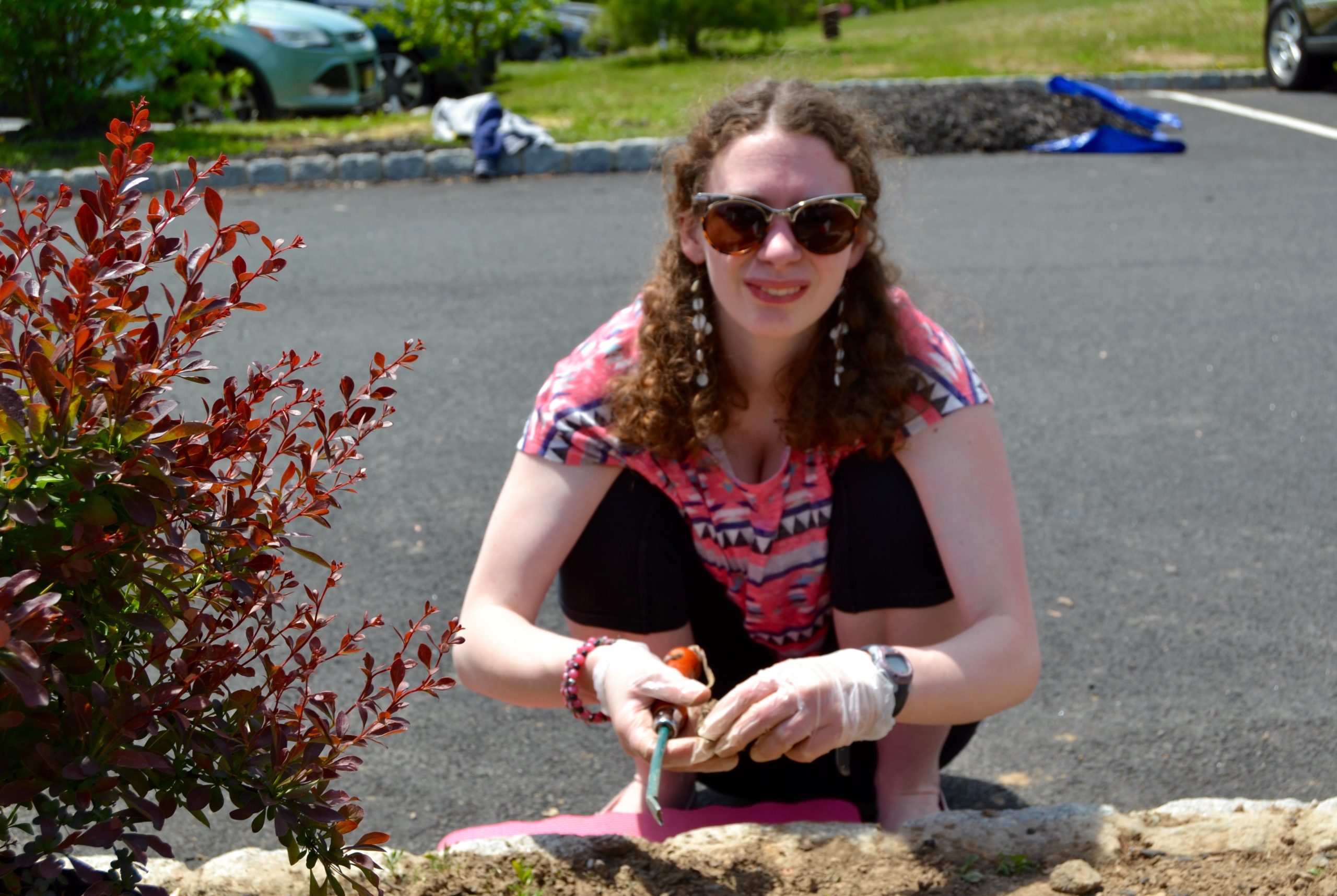
This spring Aliza plans to bring the clients out into the community to experience a variety of horticultural practices. Some plans in the making include a visit to a local nursery to help with their planting. Another group may volunteer with the America Grow organization, which provides produce to food pantries. This past fall, clients worked with America Grow to harvest windfall apples that were distributed by a food bank.
For some, horticulture is also a path to a future career.
“I currently have one client working with me three times a week,” says Aliza. “He is very self-directed and comes into the greenhouse and gets to work on his list of tasks that include watering, looking for greenhouse pests, cleaning plants, cleaning pots, sweeping the floor, and using a variety of other green maintenance items. These are necessary skills for someday working in a greenhouse.
SPREADING THE LOVE
Once the outside planting season arrives, students at both schools and I360 clients begin beautifying the grounds by planting a variety of flowers and edible plants. They maintain these gardens throughout the growing season.
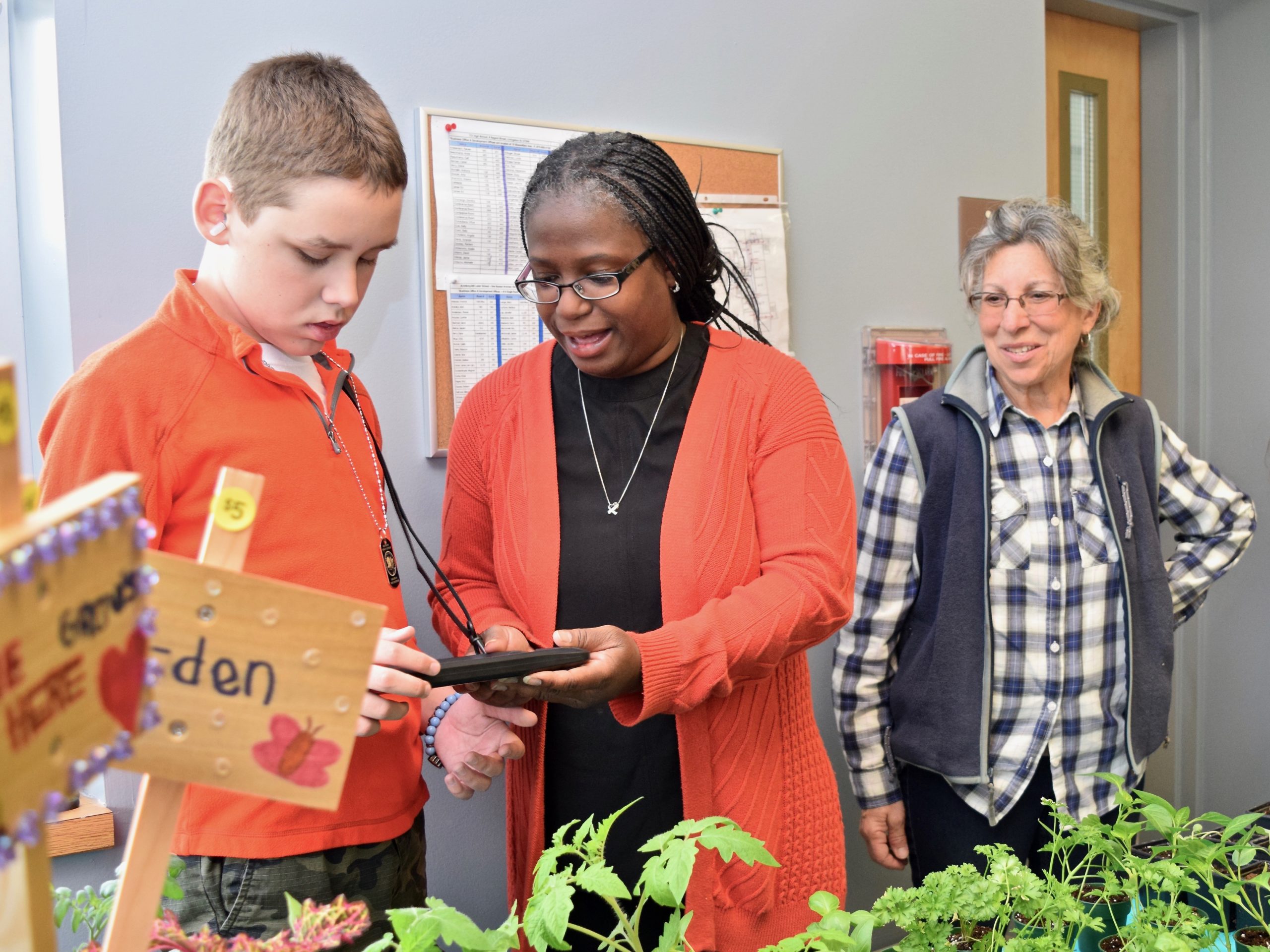
Students and clients share their horticulture projects with others, bringing plants home to enjoy, and selling them at A360’s and I360’s markets throughout the year. These plant sales offered to families and staff, provide clients and students the opportunity to learn additional skills related sales, such as talking to customers, handling money and credit cards, and creating an attractive display. All income earned from these activities is used to enhance the horticulture programs.
“We have holiday sales through the wintertime. We use cut flowers and make arrangements for Valentine’s Day. The middle school students run the May Market, which is a very big thing here. They grow and sell vegetable plants, flowers, and create crafts, like stakes for gardens,” says Carol.
Using natural collected materials, I360 clients also make wreaths for their Winter Holiday sale. They also help set up the store, take inventory, and practice customer service skills and sales.
Garden crafts teach other lessons about nature. Academy360 and Independence360 have both made bird baths and feeders that were used as a way to understand how birds are an important part of a garden, their relationship with plants, and how everything around us is woven together.
But above all, the biggest takeaway from the program is fun and a sense of accomplishment. Whether it’s digging in the dirt or seeing plants blossom, students and clients learn to enjoy the outdoors and see the part they play in the world around them.

